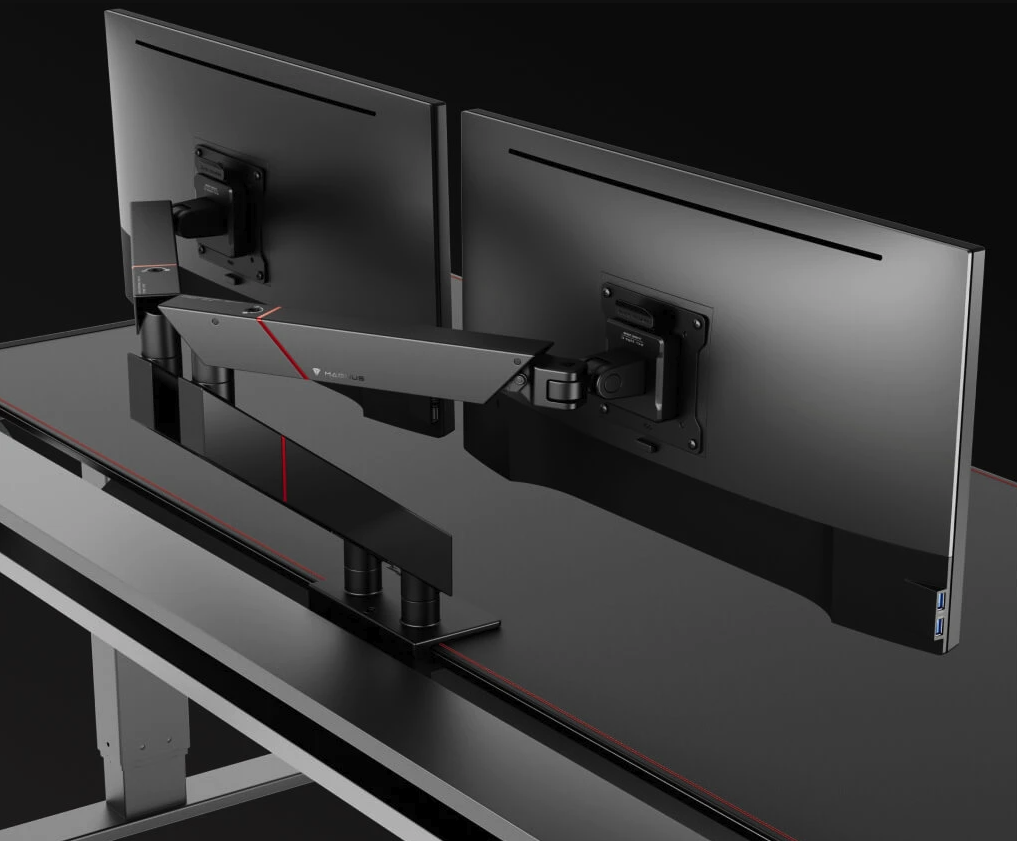"It's terrifying" - Greg Rutkowski is the most prompted artist on Stable Diffusion
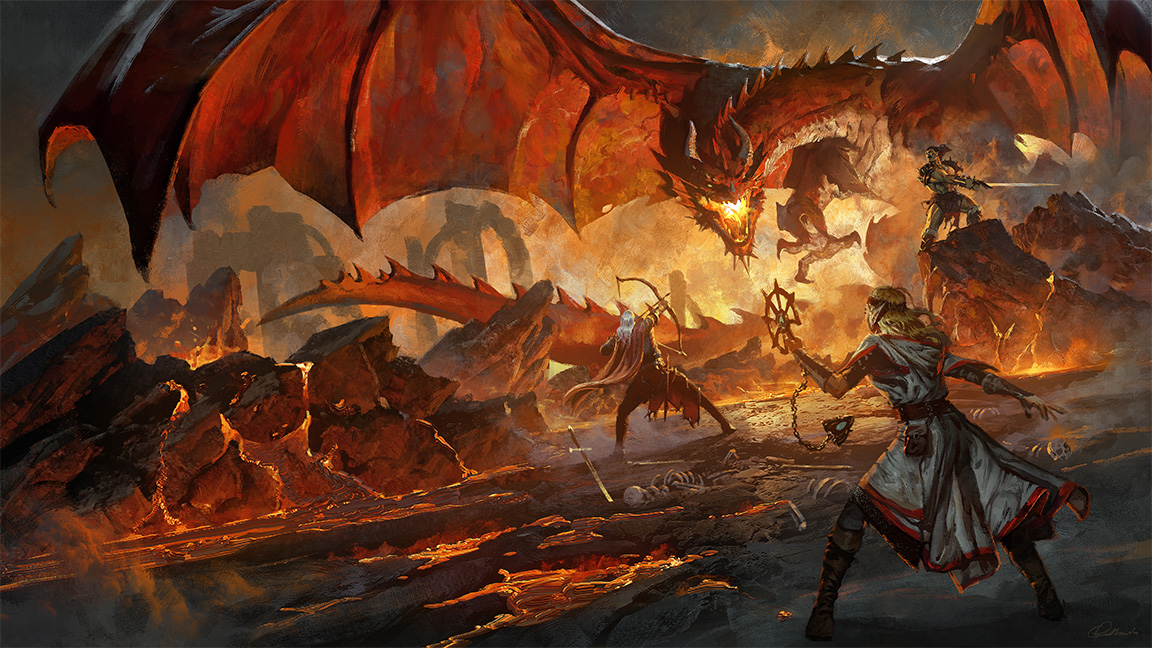
AI-generated art can look good, right? Well, meet the artist behind a lot of the fantasy images you'll likely see popping up online. He's not a fan of AI art generators. He's not created the AI art you may have scrolled over. But his name is behind a lot of it.
Greg Rutkowski is a seasoned digital fantasy artist behind some of the most popular Dungeons & Dragons art, and key art for the wildly popular MMORPG Neverwinter by Cryptic Studios, as well as work for Magic: The Gathering and Horizon Forbidden West. But he certainly didn't create that blue-skinned, blurry, eight-fingered dragon rider you may have seen on Twitter.
The style of the Polish digital artist's paintings, inspired by the masters and legends of the genre, is distinctive, atmospheric and powerful. His most famous artworks, including Dragonslayer, Northdark Reaches and Menzoberranzan for Neverwinter, and are instantly recognisable to genre fans. It's a way of painting that has taken Rutkowski a lifetime to learn and he's still perfecting, so you can see why when people ask to use art he's not created, when prompters are 'stealing' his work using an text-to-image AI art generators, it can be frustrating, if not maddening.
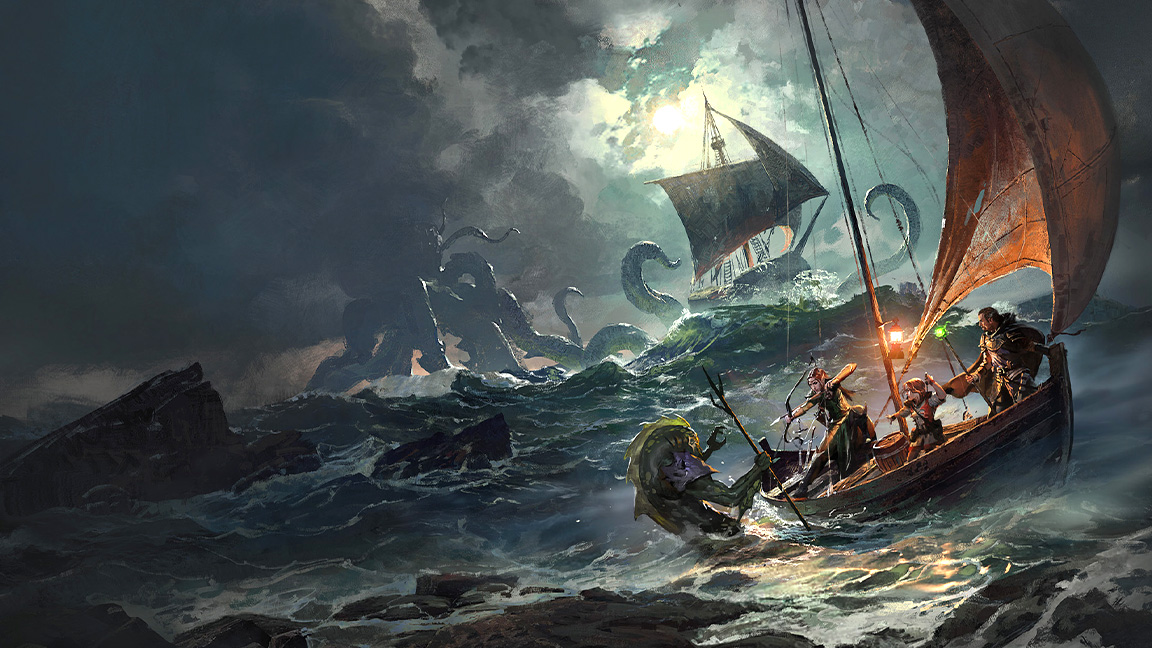
In a recent chat with me Greg Rutkowski seemed dumbfounded by the situation. "It's still a mystery for me," he reflects, "maybe because of the more painterly looking style [of Stable Diffusion], but yeah, unfortunately, I became like a meme; the most iconic prompt, because I was just delivering cool results."
What's wild about this situation was people created 'Rutkowski' art in Stable Diffusion and even signed it as the artist, confusing genuine fans of the artist and the industry alike.
For Rutkowski the best outcome will be regulation to protect artists and collectors alike. Something needs to change, particularly when Rutkowski tells me his name actually became a "default prompt" in some AI art generators. "So people can just type my name then click ‘Greg’ and get really cool results," he says.
His response was first to shout "what the hell!" and then he took a deep dive into the situation, "read a lot" and researched. He wanted to find out what was really happening and the unethical nature of some AI art generators really affected him as reality dawned.
Daily design news, reviews, how-tos and more, as picked by the editors.
He tells me: "I felt, and I still feel, really bad about it, like, bad. I'm shocked and anxious actually, because what is happening right now will affect not just me but also many other artists and their future. Someone can create something in a matter of five seconds using my name, or any other artist's name, as a prompt, as a guideline for style."
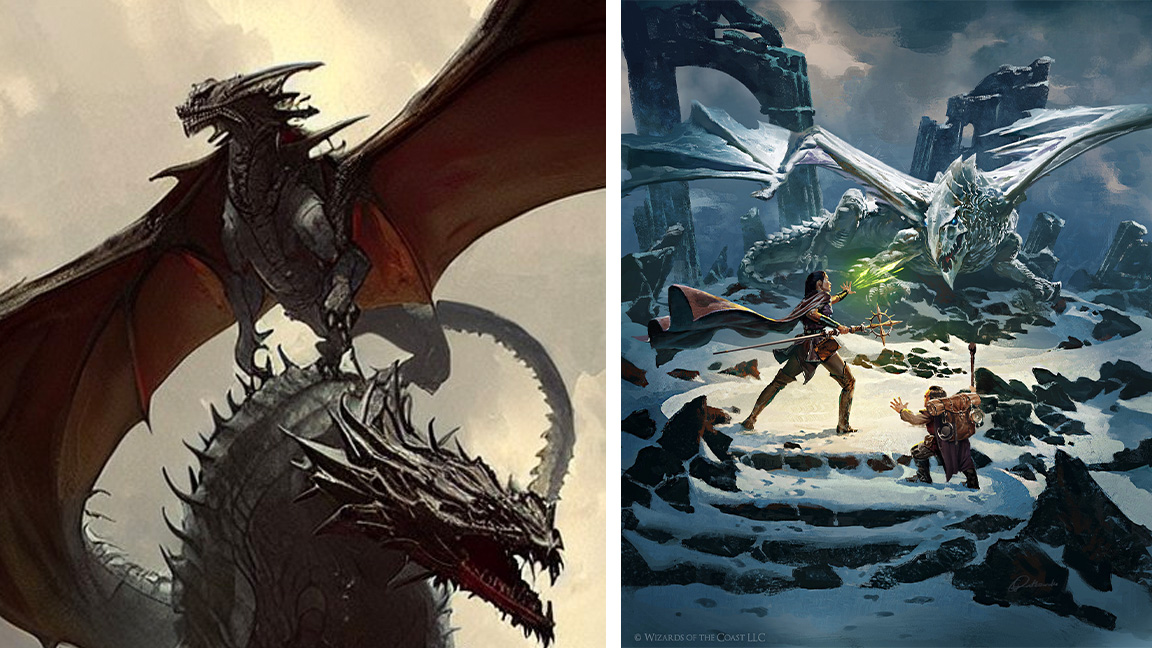
It takes Rutkowski between 20 - 40 hours to create an illustration for Dungeons & Dragons or a game's key art like that of Horizon Forbidden West. An AI can do this in seconds. "It's terrifying," he tells me. "And the terrifying thing is that it's really hard to see the future for ourselves."
The artist accepts AI image generators are here to stay, "It's an inevitable thing that will happen, whether we want it or not," he observes. But how these are used and the types of generative AI being created is crucial. For example, Adobe Firefly is a new ethical AI generator designed to give artists the option to opt out of their work being used to train the dataset, which is currently built on images owned by Adobe.
Studios and companies are already using AI generators now, as I found when I spoke with Final Frontier's Chris Colman about using generative art to create mood boards, and then bring in artists to build out concepts and final art works. In an ideal world Rutkowski believes the likes of Stable Diffusion should reset their commercial datasets and remove artists' work as references, and after all, the current situation means an image created by AI can't be copyrighted.
Stable Diffusion is trying to make amends and has recently been updated to remove the ability to make art on real celebrity likenesses and using artists names as prompts, but it's not really making an impact. As Rutkowski says, "an AI never forgets".
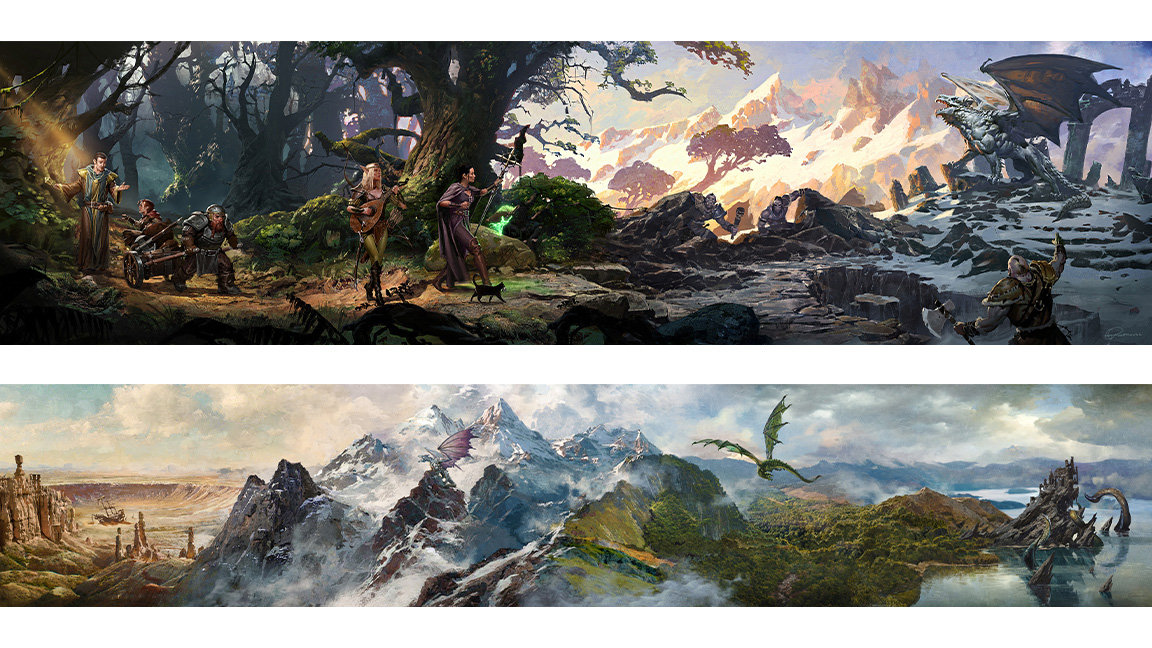
I also hear the same thing from Colman and Rutkowski, and this is a belief that eventually people will want authentic, real art made by humans. There's also a trust in the human eye to respond to non-AI art in emotional, real ways. "I really appreciate something that is handmade, created by hand, by the hand of a human, and I appreciate that more today than before," considers Rutkowski, adding: "No one actually wants to own a fake artificial intelligence-created print image".
Against this backdrop of prompt-art and the encroaching AI art trend, Rutkowski reflects on how he's lucky to be an artist working in the Dungeons & Dragons and Magic: The Gathering family, where "art directors and creative directors appreciate a human hand" and the art is created organically with direct contact with the art director.
No one actually wants to own a fake artificial intelligence-created print image
Greg Rutkowski
The final art for D&D, for example, is signed by the living artist who made it. The D&D scene is supported by people who love and value original art, they collect it and follow an artist's career. "It creates a net in this environment where you appreciate art," expresses the artist.
Right now Rutkowski is focused on his art and developing his style, he's busy working on new projects and has the forthcoming 10th anniversary of D&D's Neverwinter coming up in June. He tells me he's trying to put the AI dilemma to one side and focus on his mental health.
If you want to try an AI generator I'd suggest using Adobe Firefly as it's more ethical than most of the big apps, and we have a tutorial on how to use Adobe Firefly in the concept art process. But don't give up on creating art the traditional way, read our guide to pencil drawing techniques and the feature on the acrylic painting techniques from leading artists.

Ian Dean is Editor, Digital Arts & 3D at Creative Bloq, and the former editor of many leading magazines. These titles included ImagineFX, 3D World and video game titles Play and Official PlayStation Magazine. Ian launched Xbox magazine X360 and edited PlayStation World. For Creative Bloq, Ian combines his experiences to bring the latest news on digital art, VFX and video games and tech, and in his spare time he doodles in Procreate, ArtRage, and Rebelle while finding time to play Xbox and PS5.
